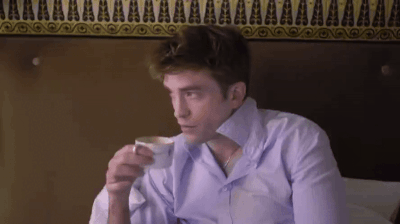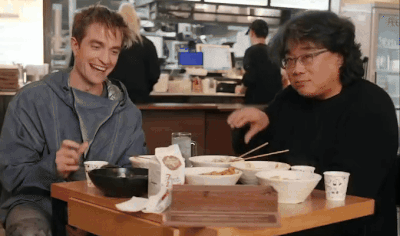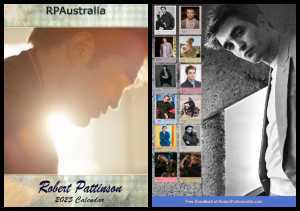*PRINT* NEW Robert Pattinson interview with The Scotsman newspaper
Imagine my surprise and delight when I opened up today’s newspaper?! I’ve kept my scans nice and BIG so hopefully easy to read for all those who can’t get the newspaper, it’s a great interview. Should I say this is a Scottish/UK newspaper, although kind of obvious in their title 🙂
Apologies the scans aren’t great, had to merge files as the paper was too big for scanner 😉
And I had to update with the image from the FRONT page of the newspaper 🙂 LOVE it

*UPDATED* with online version:
HE knows what it’s like to be famous and to be stalked by paparazzi, but in his new film Robert Pattinson is the man behind the camera
Can you imagine saying to a photographer, ‘Want to spend a week just hanging out with me?’†I don’t know if I can do justice to Rob Pattinson’s facial expression upon hearing this question but I’ll have a go. It starts with shock (his eyebrows disappear under the peak of his cap), swiftly followed by confusion (he rubs his thick beard as the brows reappear), followed by a shake of the head and a wry smile. “I remember one of the first interviews I did,†he says. “I was completely crazy. We went out to a bar and we were there for ages.†He shakes his head. “I’ve only done it once, it was right before the first Twilight film came out. The thought of doing it now.†He shakes his head. “There’s something about when you first start, people want to be sympathetic to you, no one really wants to do a hatchet job on you the first time you do something. That comes later.†He lifts his coffee cup. “Or taking someone to your house,†he says with a shake of his head. “It’s insane. The world has changed a lot.â€
You might say. I asked the question of Pattinson, once Edward Cullen, the most lusted after vampire since, well, kind of ever, now an actor with a slew of more interesting films under his belt (Cosmopolis, The Rover, Maps to the Stars) because in his new film, Life, Pattinson plays Dennis Stock, a Magnum photographer who was commissioned by Life magazine to photograph James Dean in the months before he was about to become a full blown movie star – and then an icon who embodied the live fast die young aphorism.
Stock was 26 when he met the 23-year-old Dean. They were opposites – one a young man who already seemed old, the other, only a couple of years younger, who seems almost childlike, a free-spirit. Stock is buttoned up and ground down, he’s already got a failed marriage behind him and a young son with whom he barely has any kind of relationship. He doesn’t much rate taking photographs of movie stars (different days indeed) and longs to be taken seriously as an artist. When he meets Dean, chaotic, talented and unpredictable, Stock instantly recognises that he is more than just another wannabe. Eventually, Dean invites the photographer to spend a week with him and they head off on a road trip to the farm in Indiana where Dean grew up. Stock sits at the family dinner table, takes photographs of Dean playing the bongos amongst a herd of cows, reading stories to his young cousin. It’s the kind of unfettered access that is now totally unimaginable. And Pattinson should know.
The actor is in an odd position. He’s been a global star, a heartthrob. That’s what happens when you are the high-cheekboned, pasty-pallored face of a five-film blockbuster franchise. But since he escaped the shackles of immortality he’s industriously set about creating a different kind of career. And it’s working too. Earlier this month, he was one of the recipients (alongside Elizabeth Olsen) of the Deauville American Film Festival’s Rising Star award for his work in Life. That’s not bad for someone whose career was launched with a role in a blaze of big studio hoopla. It’s not bad either for someone who looked, as I remember it from the last time I interviewed him, like they had accidentally wandered out of the local skatepark and found themselves at the centre of a multi-million dollar movie franchise. Actually, he still looks a bit skatery (cap, white and black baseball jacket over a white T-shirt and black jeans and boots) but it’s less self-conscious than it was then. In an LA hotel where a side order of banana to go with your pancakes cost $8, Pattinson had holes in his T-shirt. So he must feel pretty proud of himself having successfully transitioned out of something that never really looked very comfortable for him, into something that does?
“I don’t know if I’ve successfully done that yet,†he says through a mouthful of biscuit and coffee. “I guess it’s lucky. I did have quite a specific idea of what I wanted to do. Then, as now, I don’t really like anything. The stuff I do is essentially the only stuff I do like. So there’s no real career path. I’ve yet to do something that is my grab at ‘I want to do the number one movie’. I don’t know whether that’s fear or what, but it’s never come up in my head that I’ve been, like, I really want to make a massive, commercial movie. I’d love it if I could do these kind of things forever. You know you’re never going to regret doing it.â€
When Stock travelled back to Indiana with Dean to photograph him on the family farm, the idea was to capture a young actor before he became a movie star. East of Eden was just about to come out, Rebel without a Cause was already made and Dean was about to be cast in Giant, his final role. It was only a matter of months later, when Dean was still just 24, that he crashed his Porsche and died. And so Stock’s photographs became something else, a kind of final glimpse of intimacy – Dean was never in his family home again. They also signalled a new kind of movie star, striding through Times Square in heavy rain, his collar turned up, that iconic hair, ruffled and unkempt. “Dennis really resented that he was known for these photographs for the rest of his life,†Pattinson says. “It was as though nothing could make him happy. What an awful life when nothing makes you happy.â€
The contrast between the last time I met Pattinson couldn’t be more stark. Then, he was sequestered in a suite in the Four Seasons in Los Angeles. There were security guards at the lifts, a phalanx of women wearing headsets striding noiselessly along the plush carpeted hallways. They all looked like they were having a ball and at the centre of it all sat Pattinson like a rabbit in the headlights. He was polite, but jittery. He seemed utterly baffled and bemused by everything that was going on around him. On a sunny morning in East London, the atmosphere couldn’t be more different. When I arrive at the private members’ club where we’re meeting, I do the usual recce looking for where I might be going. What I don’t expect to see is Pattinson sitting in the corner of the bar with his girlfriend (singer, FKA Twigs), finishing up breakfast and looking for all the world like your average pair of trendy young things in a trendy, young club. There’s no entourage. No one’s paying them any attention at all. Pop star and movie star sitting in the corner.
It might sound a bit absurd, or patronising maybe, but I feel pleased for him. I remember the feeling I had when I left that LA hotel after speaking to Pattinson. It was as though I could breathe again. And I was there for about an hour. Pattinson lived like that. As one half of the most scrutinised relationship in the world – he was going out with Kristen Stewart, co-star of the Twilight films, then the biggest movie franchise in the world – Pattinson’s life was hardly his own. Everywhere he went he was photographed. Even the movie sets he worked on were besieged with fans. He had moved out of his house to get away from photographers and fans and was living in hotel rooms with the curtains drawn. I know the hardships of being a movie star isn’t quite the same as doing a 12-hour shift in a call centre, but it seemed like a pretty unpleasant existence.
“I’m a lot more settled,†he says. “I moved back to London. All the things that made me nervous in LA – and I was going to move to New York for a while – just don’t exist in London.â€
What are those things? “Basically, a lot of it was paparazzi. But it’s really the fear of your freedom being impinged upon. Just the idea that there’s always someone waiting outside your house and even if there isn’t, it’s the first thought you have in the morning. I still have that a little bit here but I don’t even try to hide really. I don’t know, maybe it’s because I’ve got a beard as well.†He laughs. “The thought just gradually disappears. It’s so strange after years and years and years, you come back to London and it just seems OK. I’m always knocking on wood.â€
In a way, you might think that playing Dean might’ve been the right role for a man of Pattinson’s experience, but that wasn’t for him. It was the relationship between Stock and his son that fascinated Pattinson. He’s a man in a bind. That’s what Pattinson liked about him.
“I like that Dennis – I don’t know how much it comes across in the movie – but he’s shirking his responsibilities quite a lot and using ‘I’m trying to be an artist’ as an excuse,†he says. “And then when he’s with Jimmy and he can’t let himself be as free he uses his child as an excuse again. It’s awful.â€
It was the awkwardness, the lack of a bond between father and son that intrigued Pattinson. It was that he wanted to play on screen. The discomfort of the time they spend together is palpable and horribly sad and perhaps it’s that which makes it feel that Stock would like it to be better. That’s not what Pattinson found in the script, nor is it what he learned from talking to Stock’s son.
“The thing I liked about the story in the first place was the question, what if you have a kid and you just don’t love them? It happens. It’s not like he doesn’t care, it destroys him but he’s incapable of the empathy needed to love his child. He can’t. He’s just too obsessed with himself.â€
Pattinson spent time with Stock’s son, Rodney, and it clearly made a deep impression on him. “I think he met his father about 10 times throughout his whole life,†he says. “He was given to different paid foster parents. It was awful, absolutely awful. When you look at interviews with Stock, he found solace in his art and it made me think there had to be a way of finding sympathy for someone like that, someone for whom that is his plight.â€
Does he get it – could he feel like that about his own work?
“I don’t think so,†he says. “No. I don’t know, maybe I’ll have a kid and be like, where are the foster parents? Who do you call?†He laughs.
Life, like Maps to the Stars, David Cronenberg’s scathing look at Hollywood in which Pattinson played limousine driver, Jerome Fontana, is about Pattinson’s industry but not from the perspective of the actor, it is sort of simultaneously inside it but wanting to be outside of it. “In terms of industry parts, I don’t know,†he says, “it’s weird because Anton [Corbjin, the film’s director] really thinks of it as a film about a photographer and photography. I’ve never been that interested in photography, but for me the whole thing was about the son. It’s very rare to see a parent who doesn’t love their kid. I thought that was fascinating.â€
And uncomfortable.
“I know, but it does happen. I talk to my friends who’ve had kids and it’s that thing when especially with guys they’re like, it’s just a baby, a crying baby.†He shakes his head. “They need to develop a relationship and sometimes that just doesn’t happen. And you can’t talk about that to anyone – Dennis can’t talk about it to anyone – I mean what would you say, ‘I’ve just had a kid and I don’t like it. Everyone would be horrified by you. They’d see you as a monster. But it’s not necessarily that, it could be just that you don’t know what to do.â€
Pattinson is drawn to outsiders, loners, the people who don’t quite fit in. It’s the difficult stuff that grabs him. Has he thought about what it might be like to have kids?
“I think the whole thing with acting is that there are very few jobs where you get to spend time answering the question how do you empathise?†he says, dodging the question. “Even talking to Rodney about it, trying to approach it from that angle, as soon as I said it, he was trying to figure things out about his relationship with his dad. We were talking about a fictional part and trying to find the truth of it, but in a weird way it was like a therapy exercise.â€
Pattinson hasn’t really changed since the last time we spoke. He just seems more comfortable in his own skin. And he remains unfailingly polite. He still has the air of being a nice boy from south west London who happens to have ended up being in films. It makes me think of Dean in the movie, another fish out of water. It’s clear right from the start that he isn’t going to play the game. He’s disillusioned with the movie business before his career has even started. He sits in his New York apartment playing his bongo drum looking at his tuxedo hanging on a nail on the wall and you just know he’s not going to show up to the premiere of East of Eden. “He didn’t go,†says Pattinson. “It was kind of amazing that he didn’t go to that. His first premiere. The balls.†He laughs. “That is so impressive. It’s the most badass thing you could do, it really is putting your money where your mouth is because in a lot of ways everyone complains about having to do press or whatever, but when you really mean it and you throw away every chance? Wow.â€
I can’t imagine him ever doing something like that. He’s too amenable, too mild mannered. “There are always occasionally people who come along who are allowed to get away with stuff like that, but I always feel if I was to do it it’d be bad. Really bad.†He laughs.
• Life is in cinemas from Friday 25 September






























silvie
Thank you Jules for posting this lovely interview. It’s quite a delightful read.
Michelle
Thank you so much Jules for scanning & sharing. What a wonderful read, enjoyed it so much. Would have been the best surprise opening the paper to see Rob 🙂 🙂
Paula
Awesome interview thanks for sharing with us.
barbara
What a wonderful interview, yes Rob is so very polite, as @Maria said there is something old Hollywood about him, and it ads to his attractiveness. Politeness is rather scarce today Rob knocks the socks off everyone he meets and they all say the same thing, how sweet, adorable warm and sincere and those eyes that hold your gaze. How on earth could you not lose your train of thought,it would come out as a gobble wobble wobble.
This is one of the best interviews I have read excellent xxx